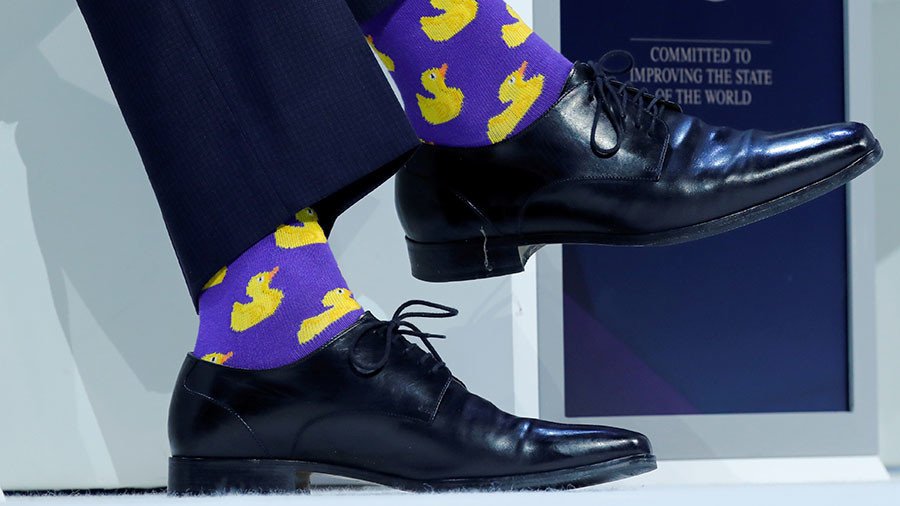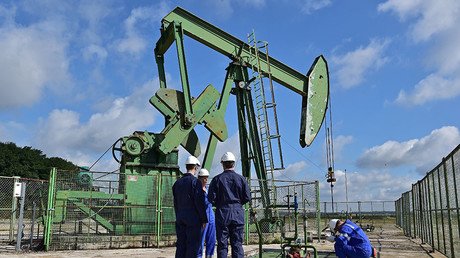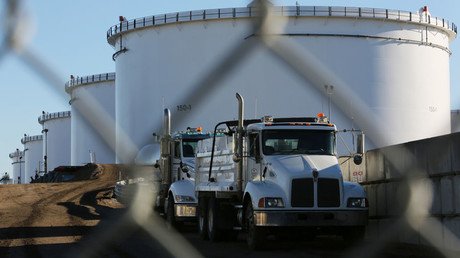The oil giant that outsmarted Trudeau

In a desperate bid to keep its last remaining proposed oil pipeline alive, Canada has decided to buy Kinder Morgan’s Trans Mountain Pipeline system for an estimated C$4.5 billion ($3.5 billion).
Canada will pay Kinder Morgan for the money that the company has already spent on the expansion project as well as for the existing Trans Mountain pipeline, which has a capacity of about 300,000 bpd.
Trans Mountain runs from Alberta to British Columbia and the proposed expansion would be a twin line that would triple the system’s carrying capacity to 890,000 bpd. British Columbia has vowed to block the pipeline even though the federal government supports the project. BC’s opposition had nearly killed the project…and still might finish it off despite the gamble by the federal government to nationalize the pipeline system.
As Reuters discovered, it appears that Canada has been taken for a ride by Kinder Morgan. The Texas-based pipeline company structured deals in such a way that it couldn’t lose, even if the project stalled. “Kinder Morgan cut creative deals with lenders and oil producers to shield itself from massive write-downs like the ones taken recently by rivals TransCanada Corp and Enbridge Inc in canceling controversial pipeline projects,” Reuters wrote.
These deals included requiring oil producers to pay even if the project was blocked by regulatory holdups. Also, the 26 lenders that Kinder Morgan negotiated with agreed to exempt the pipeline company from penalties on loans if the project was delayed or obstructed because of political problems.
All of that made Kinder Morgan more than willing to walk away, putting intense pressure on the Canadian government to resolve the dispute. Prime Minister Justin Trudeau first proposed to indemnify the project from risk, but ultimately decided to purchase it outright as the May 31 deadline neared.
“Kinder Morgan wins,” Brian Kessens, managing director investment firm Tortoise, which holds shares in Kinder Morgan Inc., told Reuters. “That’s a very fair price.”
Kinder Morgan agreed, hailing the payout from Canada. “This is a great day, not only for our company but for Canada,” CEO Steve Kean said. And as for who will manage the pipeline project while it’s under government ownership, Canada’s Finance Minister Bill Morneau said he hopes to hire people from…Kinder Morgan.
First Nations and environmental groups assailed Trudeau for buying out the project. “We are absolutely shocked and appalled that Canada is willingly investing taxpayers’ money in such a highly controversial fossil fuel expansion project,” Grand Chief Stewart Philip, president of the Union of B.C. Indian Chiefs, told the Toronto Star. “We will not stand down no matter who buys this ill-fated and exorbitantly priced pipeline.”
In a scathing article in The Guardian, environmentalist Bill McKibben called Justin Trudeau “the world’s newest oil executive,” and said that “the cutest, progressivest, boybandiest leader in the world” is going “fully in the tank for the oil industry.”
But it wasn’t just First Nations and environmentalists. Trudeau is coming under fire from all sides. Even the Conservatives criticized the government for leaving taxpayers on the hook for the project. Kinder Morgan only paid $550 million for the Trans Mountain pipeline back in 2007. Trudeau has decided to fork over $C3.4 billion ($2.6 billion) for a system that is a now a decade older with no plan on how to get the expansion constructed. “Kinder Morgan wasn’t asking for the money. They were asking for certainty and a pathway to get the get the project built,” Conservative Leader Andrew Scheer said. “The prime minister is forcing Canadian taxpayers to pay for his failure.”
Obviously, not everyone is against the project. The oil industry welcomed the news, although cautioned that it shouldn’t become the norm. “We think that today’s announcement is based on extraordinary circumstances,” Tim McMillan, CEO of the Canadian Association of Petroleum Producers, said in a press conference Tuesday. “We don’t want to find ourselves in this situation again.”
Prime Minister Justin Trudeau was desperate to push the project forward, arguing that the lack of pipeline capacity – Alberta’s pipelines are just about full – are costing Canadian oil producers C$15 billion ($11.7 billion) annually.
He’s right on that account. The cost of pipeline bottlenecks continues to weigh on Canada’s oil industry. Western Canada Select (WCS), a benchmark that tracks heavy oil in Canada, has traded at a significant discount to WTI (which, in turn, has seen its discount widen relative to Brent).
WCS fell to the mid-$40s per barrel this week, more than $20 lower than WTI and nearly $30 lower than Brent. Although some of the discount is due to transportation costs and quality issues, the price differential has exploded over the past year as Alberta’s available takeaway capacity has all but vanished.
The problem for Trudeau, however, is that it isn’t at all clear that his takeover of Kinder Morgan’s pipeline will resolve outstanding issues. The plan consists of purchasing the pipeline system, clearing the political obstacles, and then selling off the project to a private company again.
But it remains to be seen if the federal government can bulldoze British Columbia into allowing the project to move forward. The government also does not have a buyer in mind to eventually take on the project.
In a less-than-optimistic sign, Finance Minister Bill Morneau said that the government does not want to own the pipeline for a long period of time, but he conceded that it could remain the owner for the “medium term.” While he didn’t elaborate on what that actually means, his comment suggests the Trans Mountain Expansion is not moving forward anytime soon.
This article was originally published on Oilprice.com

















